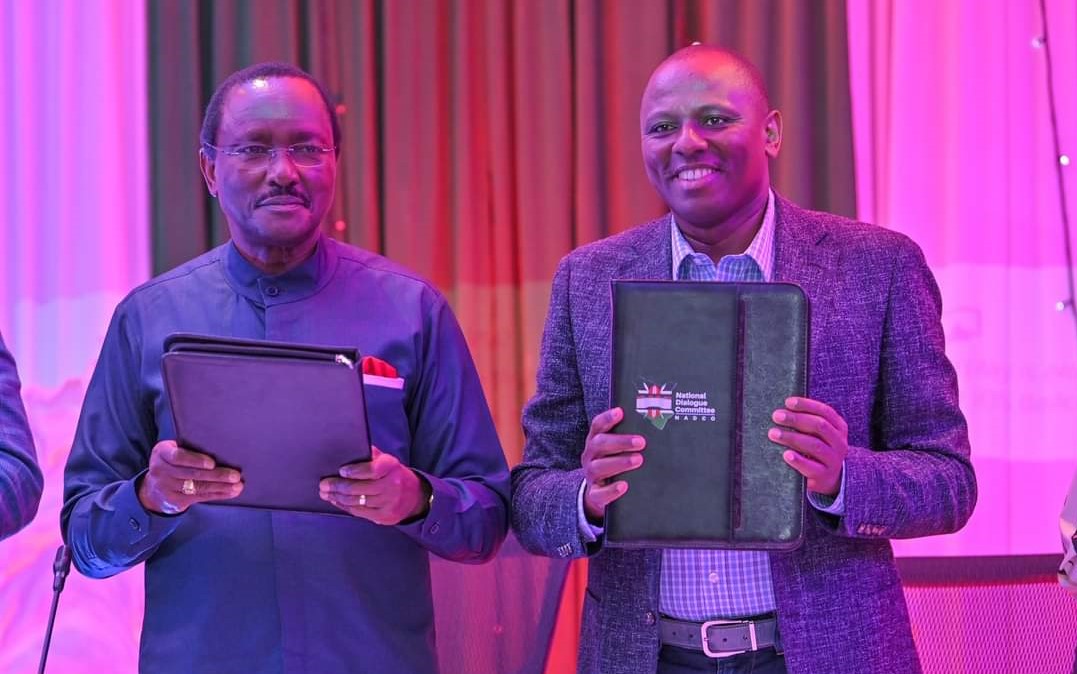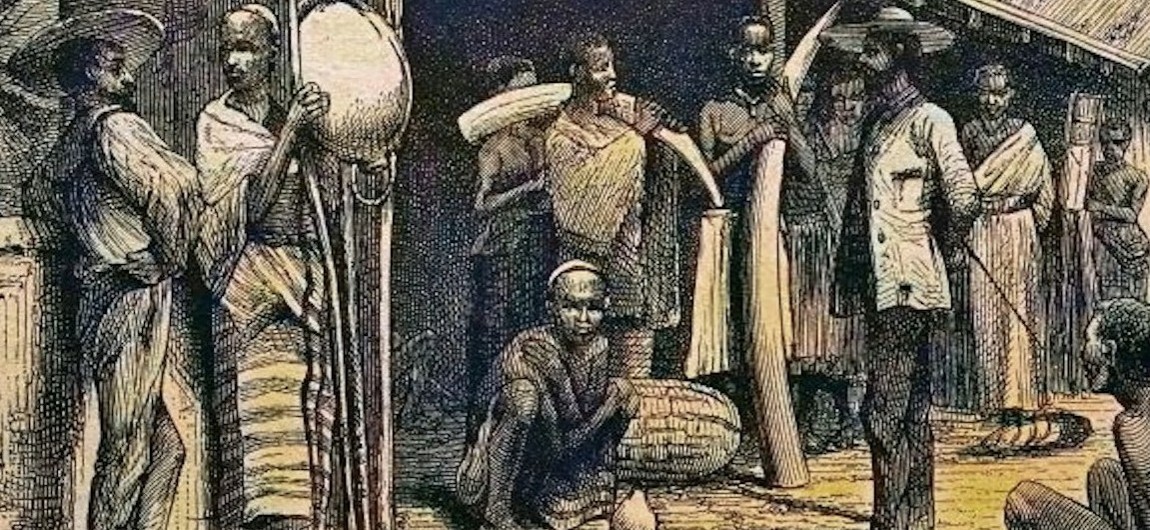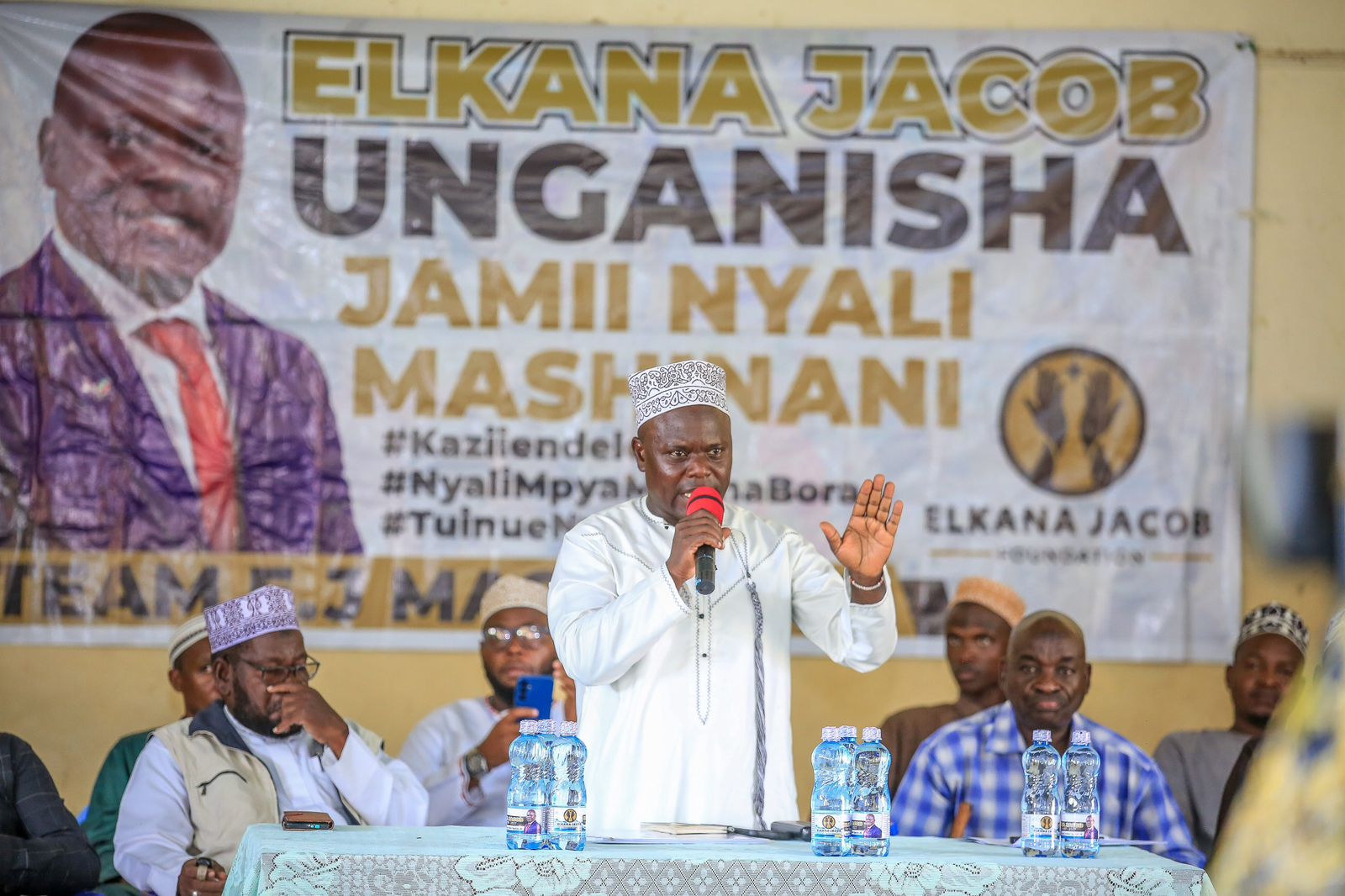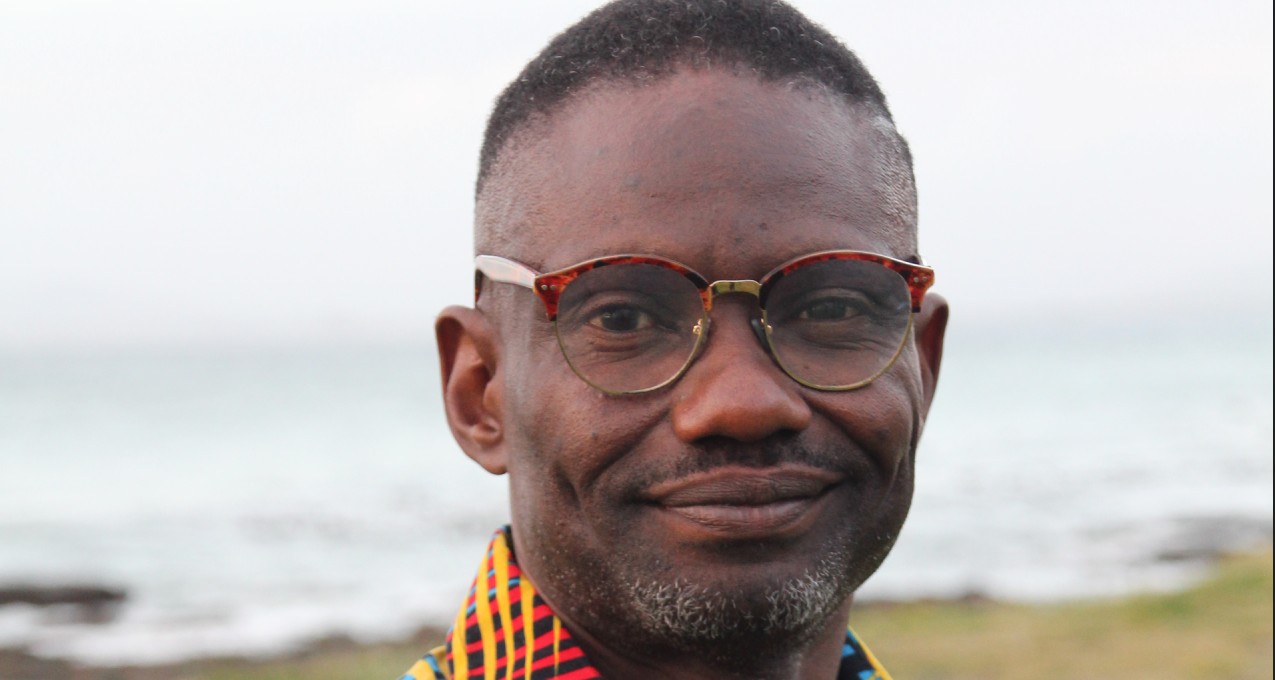Dialogue committee was lawfully constituted, court rules

The 10-member Committee had been established to facilitate a dialogue and consensus building, and recommend appropriate constitutional legal and policy reforms on issues of concern to the people of Kenya focused on five key areas.
The High Court has declined to stop the activities of the National Dialogue Committee (NADCO) co-chaired by the Wiper Party Leader Kalonzo Musyoka and the National Assembly Majority Leader Kimani Ichungw'a.
Justice Lawrence Mugambi ruled that the Parliament did not err in setting up the now defunct committee as it was within its constitutional rights to form committees aimed at exploring potential constitutional amendments.
More To Read
- Parallel statements expose deepening rift in 'United Opposition'
- Drama at Beryl Odinga’s burial in Bondo as Ida confronts rowdy youth
- Gachagua rattles political scene with push for DCP-only candidates in Nairobi in 2027 polls
- Kimani Ichung’wa blames Opposition losses on ‘tribal’ campaign messaging
- MPs return from recess with NADCO Bills top of agenda
- Broad-based government gains 7 per cent support but faces rising opposition - TIFA
Three activists – Issa Elanyi Chamao, Patrick Karani Ekirapa and Paul Kirui- had challenged the establishment of the committee whose recommendations were tabled in the National Assembly in December last year.
The 10-member Committee had been established to facilitate a dialogue and consensus building, and recommend appropriate constitutional legal and policy reforms on issues of concern to the people of Kenya focused on five key areas.
The areas included electoral justice and related matters, the cost of living and related issues, implementation of the two-thirds gender rule, governance issues including promoting national unity and inclusivity in public appointments and adequate balances.
They petitioned the high court in September last year after NADCO invited Kenyans for public participation and submission of memoranda on issues of concern.
The activists argued that the issues the initiative sought to address would require substantial constitutional amendments.
Mugambi held that the establishment of NADCO was lawful referencing the legislative process and the constitutional authority granted to Parliament to form committees for various purposes, including the exploration of amendments to the Constitution.
The judge dismissed the petition, stating that it lacked jurisdiction to entertain the case, as the issues raised were premature and speculative.
The petitioners had argued that the committee's formation violated constitutional principles, particularly with regard to public participation and the process of amending the Constitution.
However, Justice Mugambi pointed out that the court could not intervene in a matter that had not yet crystallised into a tangible dispute.
"The doctrine of ripeness applies in this case. This court upholds the preliminary objections and strikes out the petition in its entirety," stated Mugambi.
The petitioners raised concerns that the committee could lead to significant constitutional changes without adhering to the proper legislative framework.
"From the outset, there is nothing unlawful about Parliament taking steps that may lead to making amendments to the Constitution," he stated.
He invoked Article 256 of the Constitution, which grants Parliament the power to initiate amendments to the Constitution.
Other Topics To Read
He emphasised that Parliament is empowered to set up committees under Article 124(2) to assist in executing its constitutional mandates.
The petitioners, however, had argued that the committee's role in the constitutional amendment process violated the principles of public participation and governance.
They claimed that the inclusion of NADCO was not in line with the constitutional procedures for amending the Constitution.
The petitioners also argued that Parliament had failed to enact legislation to guide the amendment process, as mandated by Article 94(1) of the Constitution.
But Mugambi dismissed the arguments by Chamao and the associates, stating that the ongoing process of gathering public views was not yet focused on constitutional amendments.
"The process that the respondents have started is only aimed at gathering views generally, this may not necessarily be confined to the amendment of the Constitution," he stated.
He added that it was speculative to assert that the committee would ultimately lead to constitutional changes.
The judge said that the petitioners had prematurely sought the court's intervention, as the matter was still in its early stages.
"This Court's jurisdiction under Article 165 (3)(d) cannot be invoked to stop Parliament from establishing its own Committee to assist it execute a constitutional mandate," the judge ruled.
Top Stories Today












































